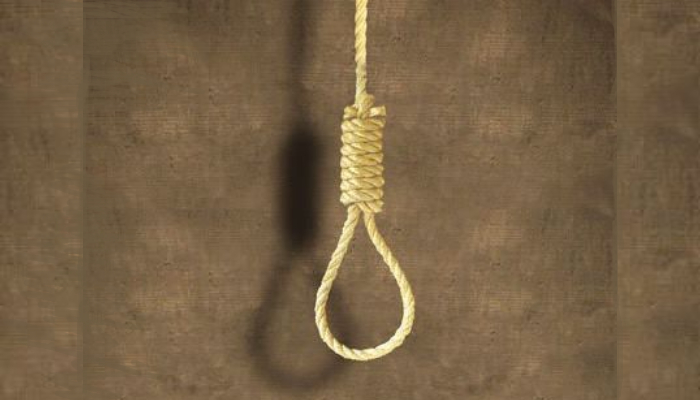
or

The report by NLU Delhi on prisoners and death convicts points various flaws and prejudice to the marginalized. Justice should not only be done but should be seen to be done. Hon’ble Supreme Court should take suo motto cognizance of the report and uplift the people from the appalling condition in order to restore the faith of the people on the Constitution
With the Dalit girl topping the prestigious UPSC exam, the rhetoric from all quarters were heard about the upliftment of downtrodden and that the marginalized are coming into mainstream, so the need to end with reservations. But the reality is far from this.
As a recent report by National Law University Delhi states that around two thirds of the people on death sentence are from the lower strata of the society. It highlighted their vulnerability and the apathy of law and system towards them, whether they are from low income group or from the SC or ST or OBC.
Even after 68 years of independence they are still far from independence as the treatment meted out to them is unfair and unjust. Various SC judgments have stated that even death convicts and prisoners have also HUMAN RIGHTS. The report also states how the system is flawed and violates their FUNDALAMENTAL RIGHTS and thus violate basic principles of constitution.
From arrest to court cases to their lives in jails, there is violation of constitution. At the time of arrest itself, there is a violation of SC LANDMARK judgment of the DK BASU VS STATE OF W.B. During interrogation, they are tortured and asked to urinate on heater. Further, prisoner’s right and right to free legal aid are not available to convicts. Most of the time the procedure applied by the court and the lawyers cannot be understood by the convicts and they are not informed about their rights even by the courts. In the court room also they stand more than 15 feet away from the lawyers and cannot listen to the arguments also.
Regarding the right to free legal aid, JUSTICE KRISHNA IYER said ‘THIS IS A STATE DUTY NOT GOVERNMENT’S CHARITY’. Even in SUK Das Vs Union Territory of Arunahal Pradesh, the court held that the free legal aid at the state cost is a fundamental right of a person accused of an offense and this right is implicit in the requirement of reasonable fair and just procedure prescribed by Art 21.
The prisoners are put under solitary confinement. Under section 73 74 of IPC solitary confinement is itself a substantive punishment which can be imposed by the court. They are hand cuffed and use of fetters are common.
In Kishor Singh Vs state of Rajasthan, SC held that the use of “third degree” method by police is violative of Art 21 and directed the court to take necessary steps to educate the police so as to inculcate respect for the human person.
The court held that the punishment of solitary confinement for a long period, from 8 to 11 months and putting bar fetters on the prisoners in jail for several days on filmsy ground like” loitering in the prison”, behaving insolently and in uncivilized manner, tearing of history tickets, must be regarded as barbarous and against human dignity and hence violative of Articles 21, 19 and 14 of the Constitution.
“Human dignity is clear value of our constitution not to be bartered away for mere apprehension entertained by jail officials,” declared Krishna Iyar. Similarly, female convicts should be kept in separate lock up and should be guarded by female constables.
The court also held that prisoners under sentence of death means person whose death sentence have become final that it could not be annulled or violated by any judicial or constitutional procedure . Thus a prisoner is not under sentence of death till he has the right to appeal against this sentence or to appeal for mercy. If by imposing confinement there is total deprivation of camaraderie amongst coprisoners ,commingling and talking and being talked to, it would offend Art 21 of the constitution . The liberty to move, mix, mingle, talk, share company with coprisoners if substantially curtailed would be violative of Art 21 unless curtailment has the backing of laws.
The fact is that socio-economic condition plays an important role in getting justice. The convicts who are influential and powerful can get parole. The various cases have proved that only the rich and the mighty have human rights.
Thus the report points various flaws and prejudice to the marginalized. Justice should not only be done but should be seen to be done, or else people will lose faith in the legal system. SC should take suo motto cognizance of the report and thus uplift the people from the appalling condition and restoring the faith of the people on constitution.
The author has completed LLB from Gorakhpur University in 2014

Lex Witness Bureau

Lex Witness Bureau

For over 10 years, since its inception in 2009 as a monthly, Lex Witness has become India’s most credible platform for the legal luminaries to opine, comment and share their views. more...
Connect Us:


The Grand Masters - A Corporate Counsel Legal Best Practices Summit Series
www.grandmasters.in | 8 Years & Counting
The Real Estate & Construction Legal Summit
www.rcls.in | 8 Years & Counting
The Information Technology Legal Summit
www.itlegalsummit.com | 8 Years & Counting
The Banking & Finance Legal Summit
www.bfls.in | 8 Years & Counting
The Media, Advertising and Entertainment Legal Summit
www.maels.in | 8 Years & Counting
The Pharma Legal & Compliance Summit
www.plcs.co.in | 8 Years & Counting
We at Lex Witness strategically assist firms in reaching out to the relevant audience sets through various knowledge sharing initiatives. Here are some more info decks for you to know us better.
Copyright © 2020 Lex Witness - India's 1st Magazine on Legal & Corporate Affairs Rights of Admission Reserved